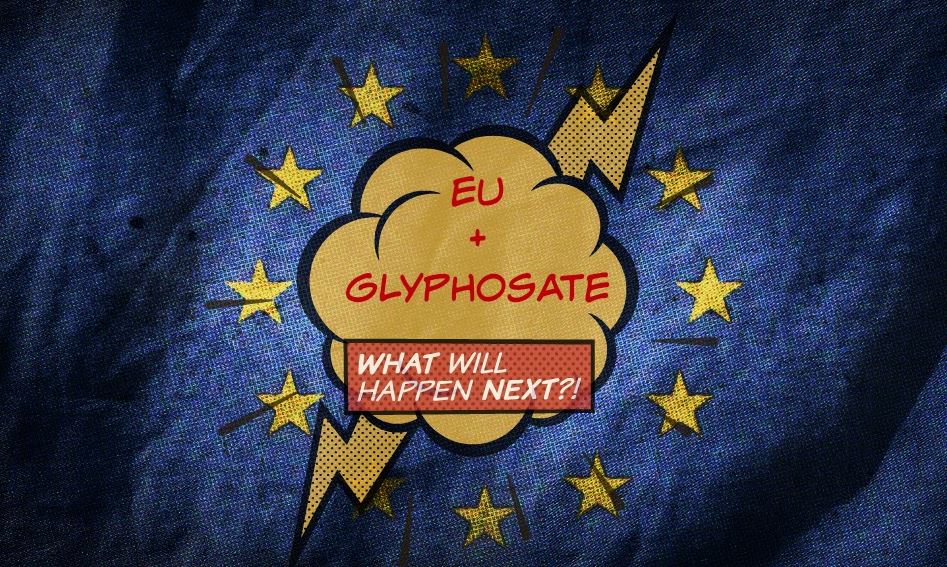After facing heavy criticism, Europe’s top food safety organization has promised to release data from their scientific review which found that glyphosate does not pose a cancer risk to humans.
On Thursday, the European Union’s European Food Safety Authority (EFSA) stated that they will soon release raw data from the studies they reviewed upon concluding that glyphosate does not cause cancer. Glyphosate is not only the most widely used herbicide, it is a key ingredient in biotech giant Monsanto’s popular Roundup products. The EFSA stated that releasing the data “will further increase the transparency of the glyphosate evaluation.”
In March 2015, the World Health Organization’s International Agency for Research on Cancer (IARC) found that glyphosate “probably” contributes to non-Hodgkin lymphoma in humans and classified it as a ‘Group 2A’ carcinogen. Aaron Blair, a scientist emeritus at the National Cancer Institute and lead author of the study, told Reuters,
There was sufficient evidence in animals, limited evidence in humans and strong supporting evidence showing DNA mutations and damaged chromosomes.
The researchers also found “convincing evidence that glyphosate can also cause cancer in laboratory animals.” The report points out that the United States Environmental Protection Agency (US EPA) had originally classified glyphosate as possibly carcinogenic to humans in 1985. The IARC Working Group evaluated the original EPA findings and more recent reports before concluding “there is sufficient evidence of carcinogenicity in experimental animals.”
This conclusion was disputed by the EFSA. In November 2015, Bernhard Url, Executive Director of the EFSA, stated “glyphosate is unlikely to pose a carcinogenic hazard to humans and the evidence does not support classification with regard to its carcinogenic potential.” Url’s position did not sit well with environmental activists who agreed with the IARC’s findings.
“Ninety-six academics from around the world signed an open letter to European Health Commissioner Vytenis Andriukaitis, dated Nov. 27, urging EU authorities to ignore the European watchdogs’s opinion,” Reuters reported at the time. “We urge you and the European Commission to disregard the flawed EFSA finding on glyphosate in your formulation of glyphosate health and environmental policy for Europe.”
The letter was written by Christopher Portier of the non-governmental organization the Environmental Defense Fund. Portier was a specialist consulted as part of the IARC study on glyphosate. Portier’s letter called for “a transparent, open and credible review of the scientific literature.”
Now the EFSA is responding to those criticism by promising to release their data. “Transparency and openness are essential values for EFSA because they strengthen confidence in science,” EFSA’s Executive Director Url said. “Sharing the data that underpin our work is a key ingredient in making science reproducible and therefore trusted.” No specific date was given for the release of the data.
The EFSA is not the only bureaucracy to dispute the carcinogenic qualities of glyphosate. The United Nations’ Food and Agriculture Organization (FAO) also released a statement claiming that glyphosate is “unlikely to pose a carcinogenic risk to humans” exposed to it through food. The World Health Organization WHO co-signed the statement with the FAO. The organizations also found that glyphosate is not likely to be genotoxic, destructive to cell’s genetic material, in humans.
“In view of the absence of carcinogenic potential in rodents at human-relevant doses and the absence of genotoxicity by the oral route in mammals, and considering the epidemiological evidence from occupational exposures, the meeting concluded that glyphosate is unlikely to pose a carcinogenic risk to humans from exposure through the diet,” the committee wrote.
For those keeping score, that’s the FAO, WHO, EFSA, and UN stating that glyphosate does not pose a risk of cancer to humans, and the WHO’s IARC stating that it could be linked to cancer.
Despite the findings by the WHO and FAO, glyphosate has been linked to other health problems. In 2014 Anti-Media reported on a study published in the International Journal of Environmental Research and Public Health which claims to have found a link between glyphosate and the fatal Chronic Kidney Disease of Unknown origin (CKDu), which largely affects rice farmers in Sri Lanka and other nations. In response Sri Lanka has banned glyphosate and Brazil is considering doing the same.
 Glyphosate is also not the only Monsanto product that has recently been connected to cancer. In June 2015, the IARC also found that the weed killer 2,4-dichlorophenoxyacetic acid, known as 2,4-D, “possibly” causes cancer in humans.
Glyphosate is also not the only Monsanto product that has recently been connected to cancer. In June 2015, the IARC also found that the weed killer 2,4-dichlorophenoxyacetic acid, known as 2,4-D, “possibly” causes cancer in humans.
Who is the average person – with only a basic understanding of this science and these chemicals – to trust in this situation? The European government organization, the American bureaucracy, or the global government? None should be fully trusted, but we can look to these institutions and inspect the people involved, the financial connections, and other possible conflicts of interest in hopes of finding some clarity.
One thing is for certain, whether or not glyphosate is a cancer risk, it is a fact that the over reliance on pesticides and chemicals is damaging the planet, the plants, and the animals. Is is that difficult to imagine that it could also be damaging to human life?
What’s the solution? Stop supporting these industrial factory farms that partner with Monsanto, stop using chemicals to grow food, and invest in organic community and backyard gardens. These are powerful beginning steps towards reestablishing balance between humanity and the planet.
Derrick Broze is an investigative journalist and liberty activist. He is the Lead Investigative Reporter for ActivistPost.com and the founder of the TheConsciousResistance.com. Follow him on Twitter. Derrick is the author of three books: The Conscious Resistance: Reflections on Anarchy and Spirituality and Finding Freedom in an Age of Confusion, Vol. 1 and Finding Freedom in an Age of Confusion, Vol. 2
Derrick is available for interviews. Please contact Derrick@activistpost.com
This article may be freely reposted in part or in full with author attribution and source link.
Image Credit: DaisyLuther.com


It will be interesting to see how the teflon ‘spin-doc / liar-lawyers’ are going do the circumlocutory wiggle & dance in a combination of subtle smoke & mirrors & overt prevaricated mendacity… where the facts are irrefutable….get the popcorn ready for this one.(lol)
The unholy coward crowd will be busy sending bank accounts internet numbers.
FDA you are a bunch of nimrods, or as Stalin would say ..”useful idiots”.
SHEisDISPICABLE
Bribery based science.
As long as weeds are killed, and money is spent on weed killer, killing humans is acceptable. After all, the outfit that provides the raw material, in the form of sick people, to the healthcare industry is now seen as a positive thing.